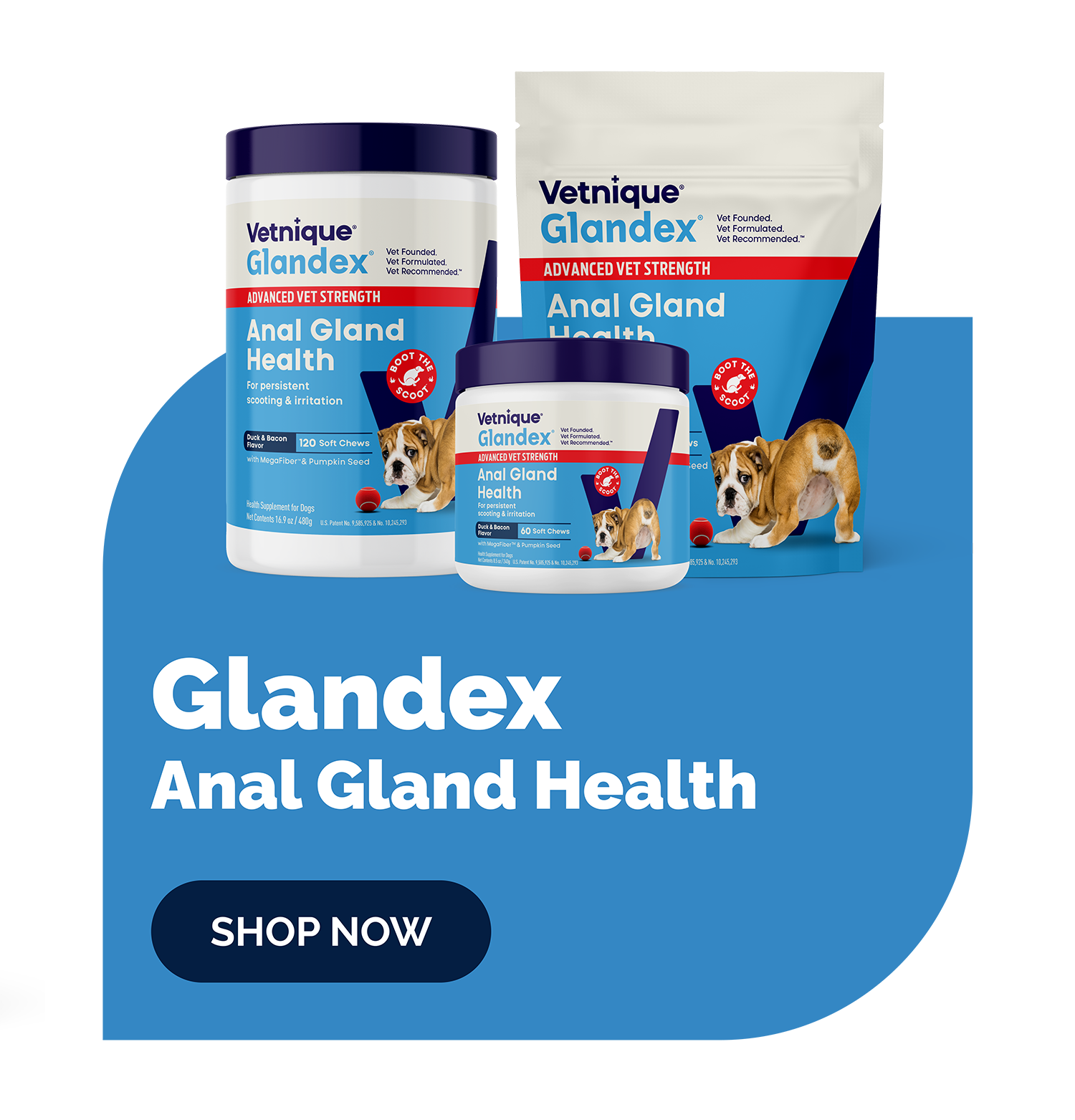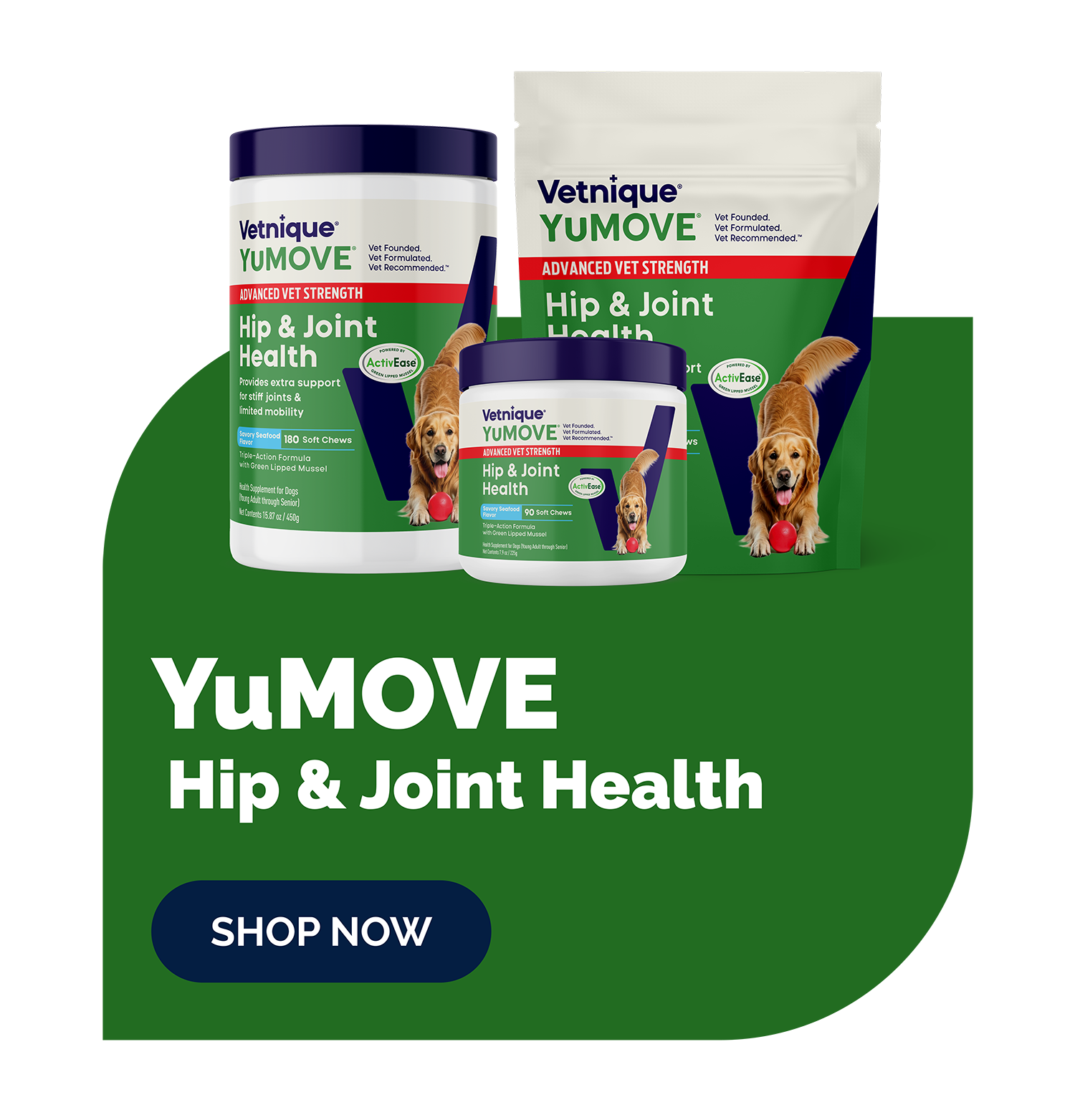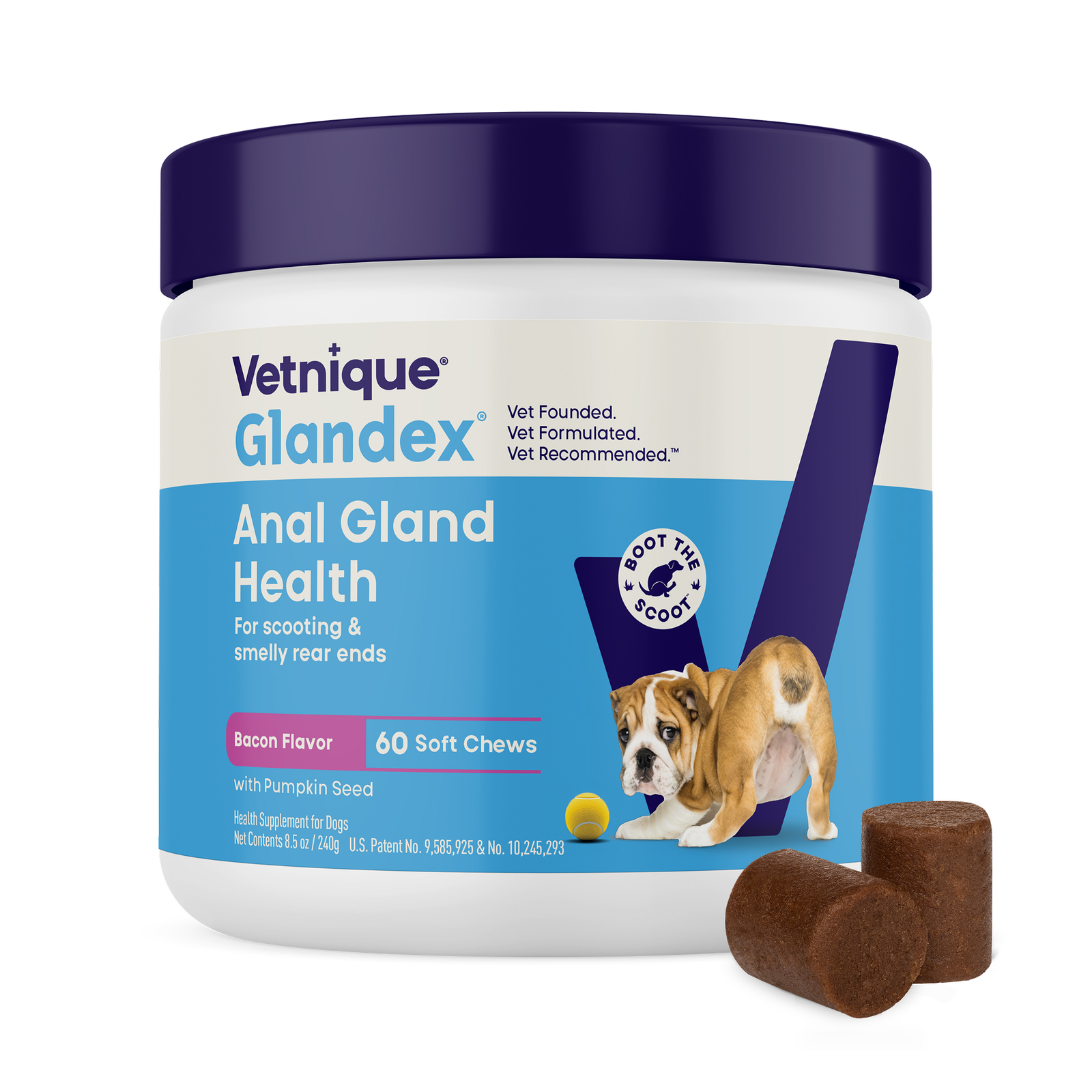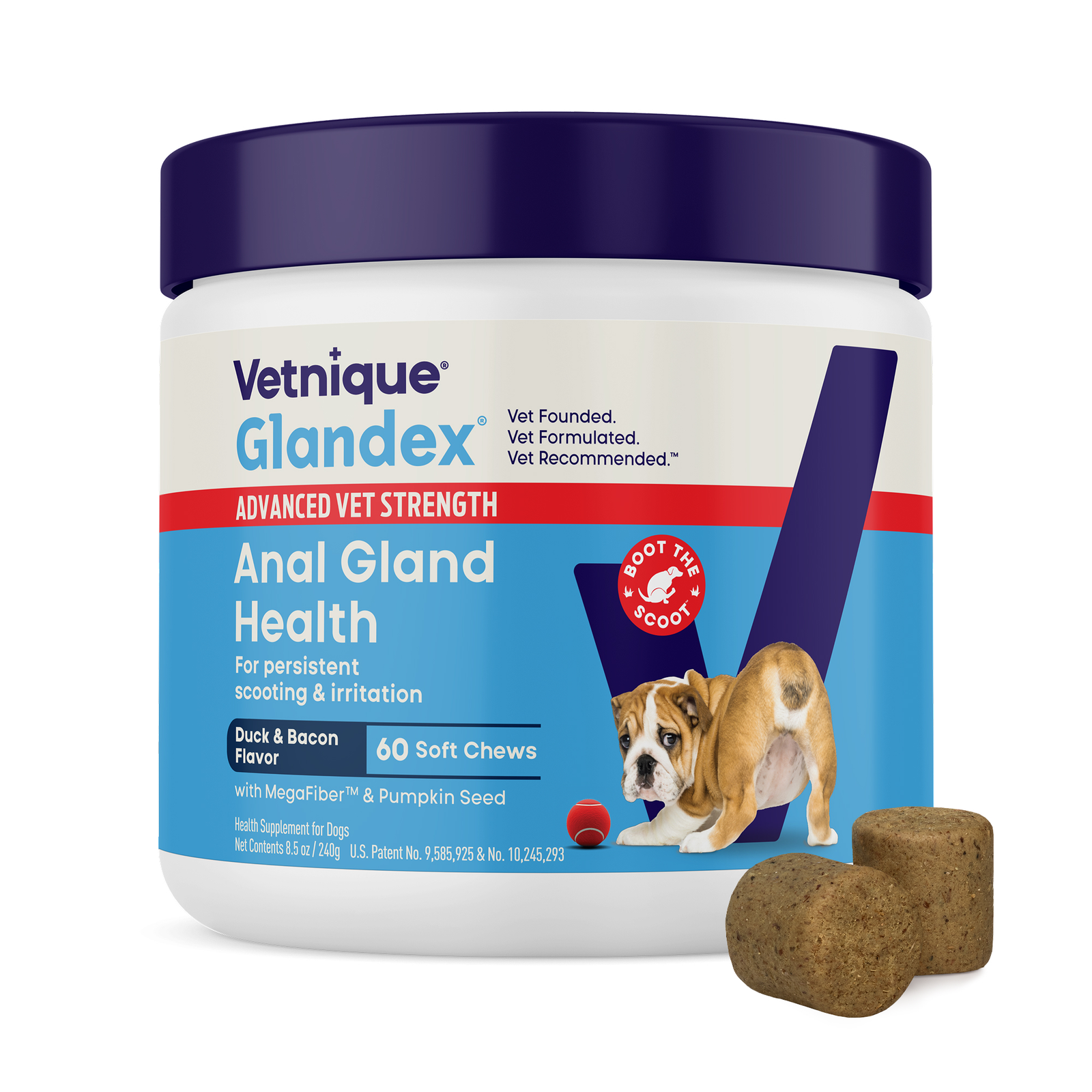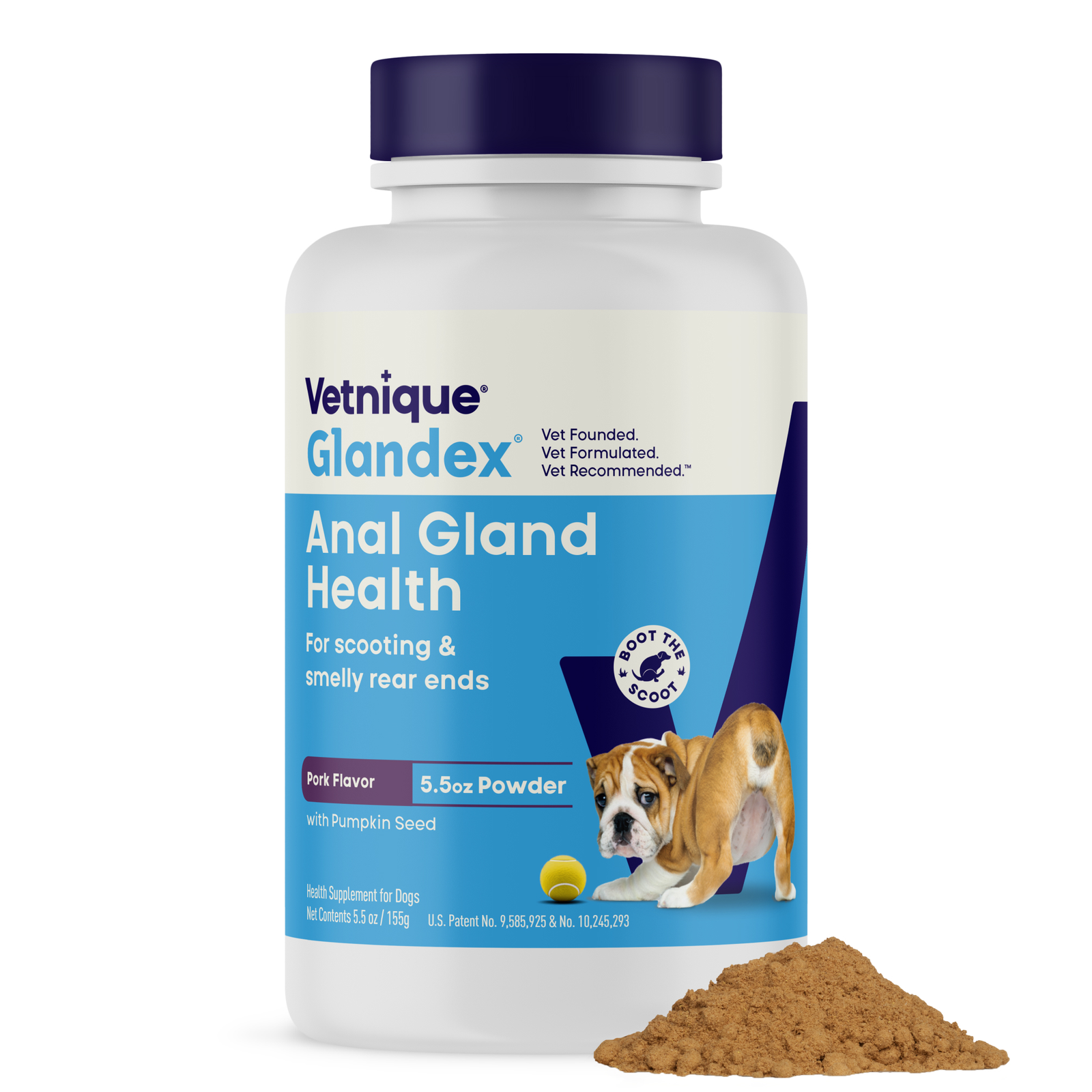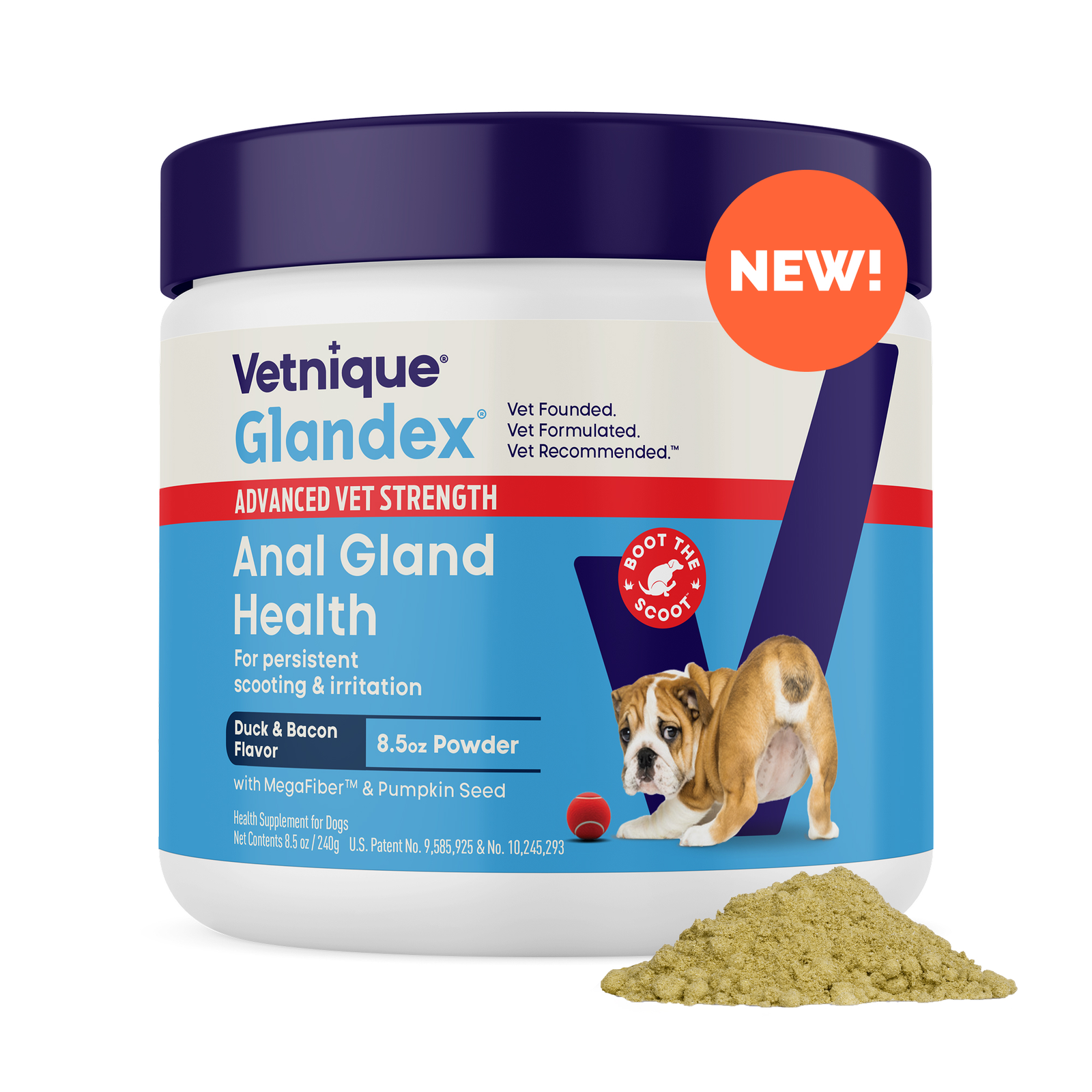
Dog Constipation: How To Help Your Dog Poop Quickly
Vet Verified
WRITTEN BY DR. PATRICK MAHANEY
Jump to Section

Dealing with dog constipation can be frustrating for both you and your furry friend. It's important to understand the causes, symptoms, and treatments available to help your dog poop quickly and safely. While constipation in dogs can be troublesome, luckily there are many effective ways to manage and treat this common issue. With the right knowledge, you can help ensure your dog's bowel movements stay healthy so they can stay happy.
What is dog constipation?
Dog constipation occurs when a dog has difficulty passing stools or does not have bowel movements as regularly as usual. Typically, dogs should have a bowel movement at least once a day. When they don't, it can lead to discomfort, agitation, and potential health issues. Constipation can be caused by various factors, and understanding these can help you provide the right care.

Causes of dog constipation
Understanding the causes of dog constipation is crucial in preventing and treating this uncomfortable condition.
Several factors can contribute to constipation in dogs, ranging from dietary issues, stress, and more. Let's explore the most common reasons why your dog might be constipated and how to turn things around.
Poor Diet
A common cause of dog constipation is a poor diet. Dogs need a balanced diet with adequate fiber to serve as a prebiotic to support healthy probiotic (beneficial bacteria) levels and regular bowel movements. If your dog is eating too much processed food or not enough fiber, it can lead to constipation. Make sure your dog's diet includes a balanced mix of protein, carbohydrates, and fiber to keep their digestive system running smoothly.
Blockage
Blockages can occur when a dog swallows something that can't be digested, such as bones, toys, or other foreign objects. This can obstruct the intestines and lead to dog constipation. If you suspect your dog has swallowed something it shouldn't have, seek veterinary attention immediately.
Digestive & Anal Gland Issues
Sometimes, digestive issues or problems with the anal glands can cause constipation. Dogs with anal gland issues might have trouble passing stools, leading to discomfort and constipation. Regular physical exams, including anal gland expression when needed can ensure your dog's glands are expressed when needed can prevent this issue.
Medication Complications
Certain medications can cause dog constipation as a side effect. If your dog is on medication and you notice changes in their bowel movements, consult your vet. There may be the need to adjust the dosage or switch to a different medication to alleviate the problem.
Stress or Anxiety
Dogs, like humans, can experience stress or anxiety, which can affect their digestive system. Major changes in their environment, such as moving to a new home, traveling, or changing normal routines can lead to dog constipation. Ensuring a stable and calm environment can help keep their digestive system on track.
Allergies
Allergies can also be a culprit. Dogs with food allergies or sensitivities might experience digestive issues, including constipation. Identifying and eliminating allergens from their diet can help alleviate these symptoms.
Common signs & symptoms of dog constipation
Recognizing the signs of dog constipation can help you act quickly. Common symptoms include straining to poop, grunting or whimpering while passing stool, producing hard, dry stools, or not having a bowel movement at least once per day. Other signs might include bloating, discomfort, lethargy, and decreased appetite. If you notice any of these symptoms, don’t wait––it's time to take action.
Complications of untreated constipation
Leaving dog constipation untreated can lead to severe complications. Chronic constipation can cause megacolon, a condition where the colon becomes enlarged and loses its ability to have normal muscular contraction to move stool effectively. This can lead to severe discomfort and might require surgical intervention. Additionally, untreated constipation can cause vomiting, lethargy, and weight loss due to decreased nutrient absorption.

How is dog constipation treated by a vet?
When you visit the vet for dog constipation treatment, they will typically start with a thorough examination. This may include a physical exam, blood and fecal tests, and imaging like X-rays to determine the cause. Treatment might involve dietary changes, medication to soften the stool, or enemas to help your dog pass the stool. In severe cases, surgery might be necessary to remove intestinal blockages.
Dog constipation home remedies
There are many effective home remedies for dog constipation that can be employed at home under guidance from your vet. Increasing your dog's fiber intake with pumpkin (canned or dehydrated), psyllium, adding healthy oil (coconut or olive) to their food, or ensuring they stay hydrated are common front-line remedies. Always consult your vet before trying home remedies to ensure they're safe for your dog and that you’re offering the right quantity for your pet’s weight.
Regular exercise also promotes healthy digestion, making daily activities like walks or throwing the ball at the park a great way to get your dog’s digestive tract moving.
How to make a constipated dog poop quickly
When to see a veterinarian for a dog who won't poop
Join the Pack!

Sign up for exclusive deals, curated pet tips from veterinarians, and product launches!
Pet Parents are Also Reading
August, 2024
April, 2024
February, 2024
April, 2024
Written By a Vetnique Vet

Dr. Patrick Mahaney, VMD, CVA, CVJ
Dr. Patrick Mahaney works as a concierge-style veterinarian and has a number of celebrity clients through his house-call practice, California Pet Acupuncture and Wellness. He loves building personal, long-term relationships with his clients to best suit their pets’ needs within the comfortable confines of their homes.
To spread his message of holistic veterinary medicine on a large-scale basis, Dr. Mahaney attained a Certified Veterinary Journalist certificate and enjoys contributing to pet-related media projects. He is also a certified veterinary acupuncturist.
